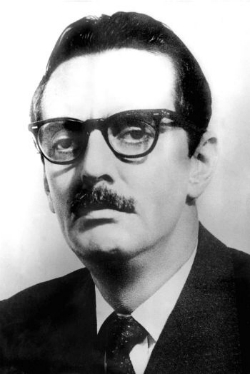O Marquis of Pombal is the name by which Sebastião José de Carvalho e Melo, diplomat and Portuguese prime minister, became known.
He is part of the generation of rulers known as enlightened despots that affected the Kingdom and its colonies.
Biography
Son of Manuel de Carvalho e Ataíde and Teresa Luísa de Mendonça e Mello, he was born in Lisbon, on May 13, 1699. He died in Pombal on 8 May 1782.
He left the Faculty of Law at the University of Coimbra after a year of studies, entering a military career, where he did not adapt.
He then began to devote his spare time to studying history, politics and legislation.
He was ambassador to England and Austria. His ascension would take place when, after being called to be minister of King D. Joseph I, showed his abilities by planning and rebuilding the city of Lisbon after the earthquake that destroyed it in 1755.
Surprised by the achievement of your reconstruction plan, D. José I called him to be prime minister. He then received the title of Conde de Oeiras in 1759, and finally that of Marquis de Pombal in 1769.
He defended absolutism as the best way to govern a nation. In this way, he centralized powers more and more in the Bragança family and began to persecute some families from the aristocracy Portuguese, especially the Távoras.
When King Dom José I suffered an attack, the Marquis de Pombal immediately accused the Távora family of planning and accusing the assassination attempt.
In a quick investigation, the Marquis of Pombal ordered the arrest and execution of some members of the Távora family and the Duke of Aveiro - members of the old nobility.
So he sent a message to the nobles who thought of conspiring against the crown.
Renovations

The Marquês de Pombal shows his achievements in this painting: the reconstruction of Lisbon and the increase in maritime trade. Authors: Louis-Michel van Loo and Claude Josph Vernet, 1759.
Influenced by Enlightenment, the government of the Marquis of Pombal was a government characterized by the so-called Pombaline Reforms.
The Marquis of Pombal strove to make Portugal economically independent from England. In this way:
- Created the Company for the Agriculture of the Alto Douro Vineyards;
- He created the General Fishing Company of the Kingdom of the Algarve;
- Implemented a new tax collection control;
- It prohibited the enslavement of Indians;
- It prohibited discrimination against Jewish converts at the time of the Inquisition.
He was concerned with education, I intend to modernize it by creating the faculties of medicine and mathematics. Until then, education was the responsibility of the Catholic Church.
Pombaline Reforms in Brazil
In Brazil, the government of Pombal brought the following changes:
- Creation of the Companhia do Grão-Pará and Maranhão;
- Creation of the General Company of Pernambuco and Paraíba;
- Definitive extinction of hereditary captaincies;
- Elevation of Brazil to Viceroyalty of Portugal;
- Appointment of Rio de Janeiro as the colony's new capital – replacing Salvador;
- Expulsion of the Jesuits.
These reforms directly impacted the production and control of mining activity in Brazil and would be one of the causes of Mining Inconfidence.
Expulsion of the Jesuits
The Marquis of Pombal accused the Jesuits of promoting Indian resistance to Portugal.
Alleging this reason, in 1759 he expelled and confiscated the assets of the Society of Jesus in Brazil, as he had already done in Portugal.
The religious would be expelled from several European countries such as Spain, Parma and Duas Sicilies and France and, later, the order is suppressed by Pope Clement XIV, in 1773.
Read more: Society of Jesus - Jesuit Order.
Career End
The fall of the Marquis of Pombal begins after the death of King D. João I, in 1777, when D. Maria I drives him away from power.
The sovereign strips him of all positions and rehabilitates the Távora family posthumously. Members who had been confined to convents were able to return to civilian life.
D. Maria declares him guilty of several crimes, including embezzlement and abuse of power, for which the penalty was exile.
However, taking into account his age, the queen allows him to remain in her house, where he dies five years later.
Read more:
- Old Regime
- Despotism
- Enlightened Despotism
- Treaty of Meuthen



